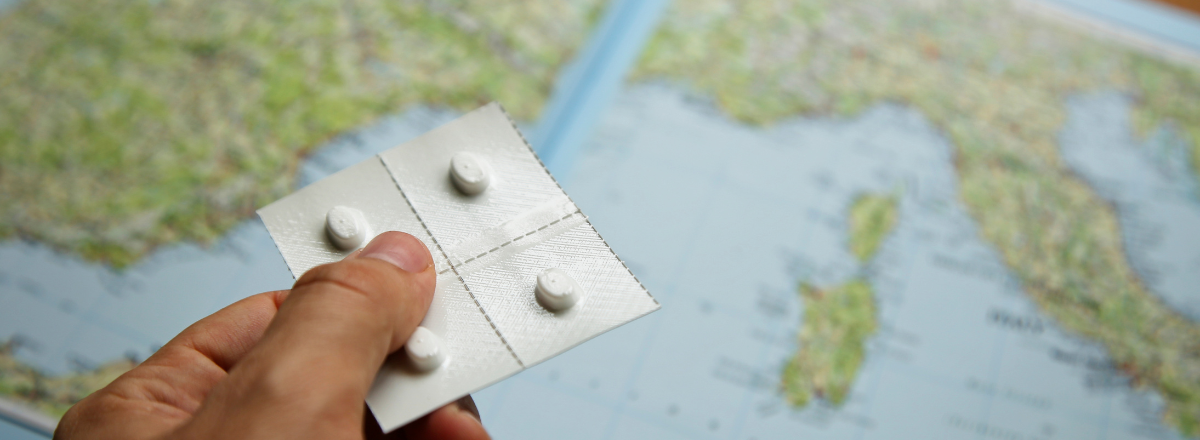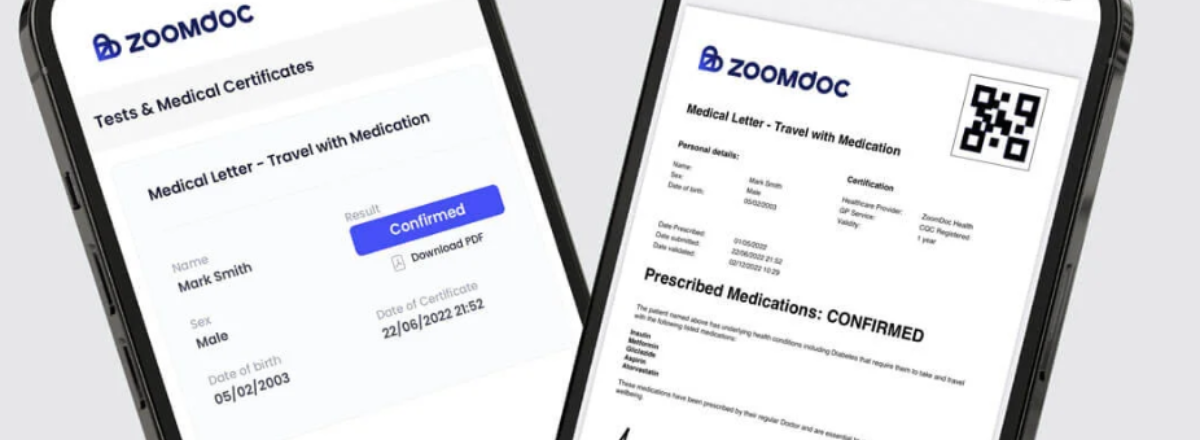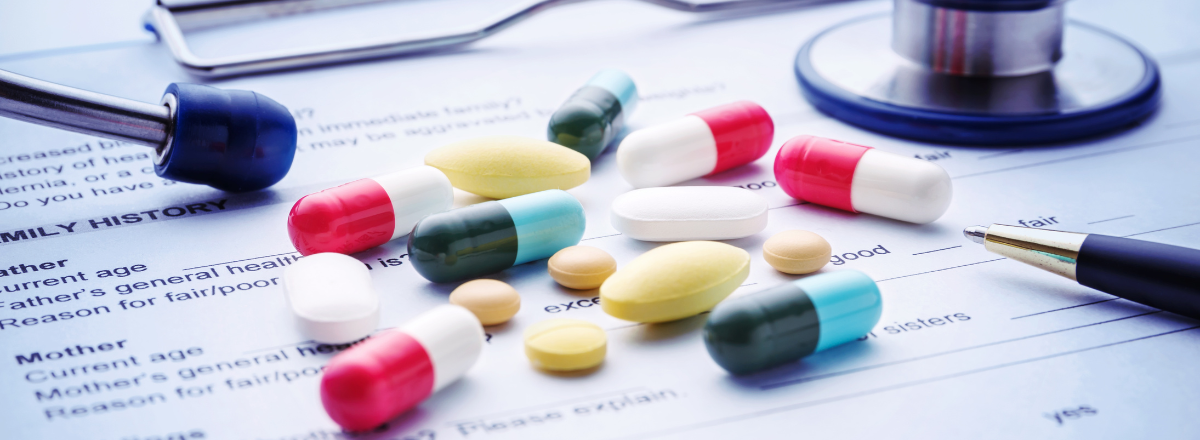Many of us will be jetting off for Easter, planning our summer vacation or even taking time out to go travelling. Maybe you’re even planning to work abroad?
Whatever your holiday plans are this year, there’s a lot to organise before you go. From checking if your passport is valid to arranging health insurance, every trip abroad has a long list of admin to go with it.
But there’s one more thing to add to your list that you may not have thought of, says ZoomDoc GP Dr Lydia Williamson.
If you take regular medication, such as diabetes, blood pressure medication or strong painkillers, you may need something called a ‘Travel With Medication letter’, she says.
While some medication is fine in some countries it can be problematic in others and you don’t want to risk having it confiscated once you land, or worse, being arrested or fined if it’s illegal there (even if it is legal here in the UK).
Make sure you do your research well ahead of your departure date. This includes:
- Getting enough of your medication to last the duration of your trip – allow for delays and always carry it in your hand luggage in case your suitcase goes missing.
- Checking if your medication is allowed where you’re going – some countries will not allow certain medicines into the country at all. Others will require proof of what it is and why you need it.
Here’s what you need to know about travelling with medication – and how to get a same-day letter to make life easier before you jet off.
Which medication can you take abroad?

Countries have different rules and regulations about: the types of medicine tand the maximum quantity you can take in.
Medicine prescribed in the UK or available over-the-counter can be restricted or even banned in other countries so what you can take with you just depends on where you’re going. This also includes any stopovers or onward destinations, too.
Countries that are particularly strict include India, Pakistan, Turkey and the United Arab Emirates (Dubai, Abu Dhabi).
On its website, Gov.uk advice recommends the following:
‘If you’re taking medicine out of the UK, ask your doctor or pharmacist whether your medicine contains a controlled drug. If it does, check the rules for the country you’re going to with the embassy before you travel. You’ll need to prove it’s yours with either a prescription or letter from your doctor.’
Travel With Medication letter: what is it and where can I get one?

Many countries allow a 30-day supply of certain medicines, but also require a certificate listing all their medications.
According to NHS advice, if you’re travelling with medicine you should take a copy of your prescription and a letter from your GP.
This should contain:
- details of your medicine, including its generic name (not just the brand name)
- the name of the health condition that you need the medicine for.
NHS advice also suggests ‘getting the information translated into the language of the country or countries that you’re visiting.’
Although these can be available from your NHS GP, they may charge for the service. You may also need to make a GP appointment to request this and return at a later date to collect it.
ZoomDoc offers private Travel With Medication letters that don’t require a GP appointment and can be available the same day.
‘This saves you time and stress and means you can tick it off your travel to-do list and focus on everything else instead,’ says Dr Lydia.
Purchase your Travel With Medication letter here.
Here’s how it works:
Once you’ve ordered the letter, which costs £45, you’ll complete a short online form and upload an image of your current prescription or repeat prescription form. Our doctors will then review the evidence and call if anything further is required.
You’ll receive a same-day digital PDF letter signed by a UK GMC-registered doctor.
‘If for any reason we can’t provide you with this letter you’ll receive a full refund,’ says Dr Lydia.
Here are 7 more medical letters you might just need this year.
Top tips for travelling with medicines

Always carry medicines and medical equipment in your hand luggage in their original packages, correctly labelled.
Carry your medication letter with you – you may need to show it on arrival and if you need medical attention while you’re abroad.
Take medicine in original packaging – while it’s tempting to decant health and beauty items, having medicine with the packaging, leaflet and labels on can be a major help.
Take enough medicine with you – but not too much as some countries have restrictions on quantities as well as the type of medicine they allow in.
Split it between your luggage – if you do pack your medication, split it between different cases and ideally carry some with you in your hand luggage, too.
Remember the liquids rule – if you have liquid medicine with you, it cannot be over 100mls in hand luggage. Check in advance if there are any exemptions on this for where you’re travelling from/to.
